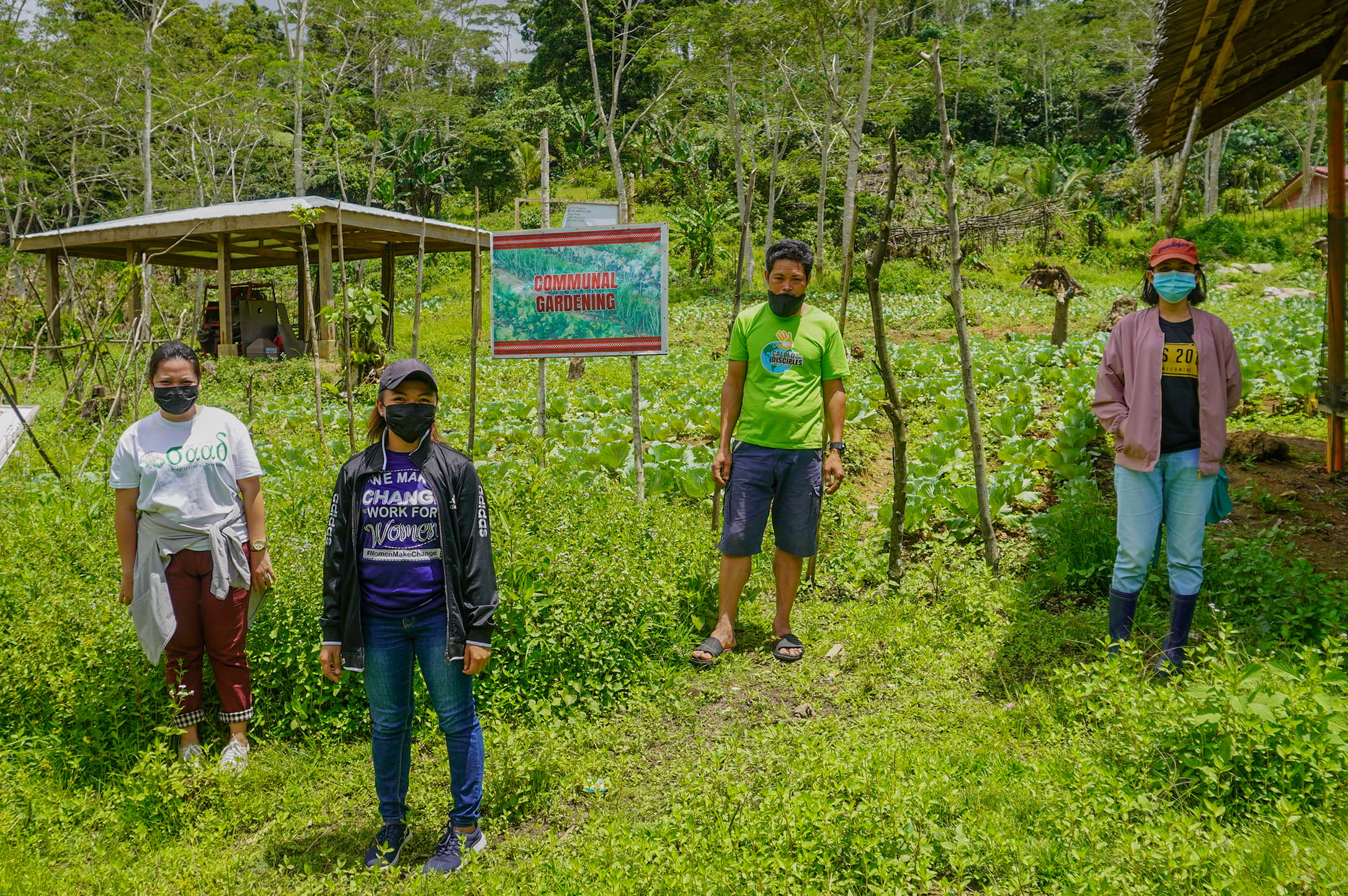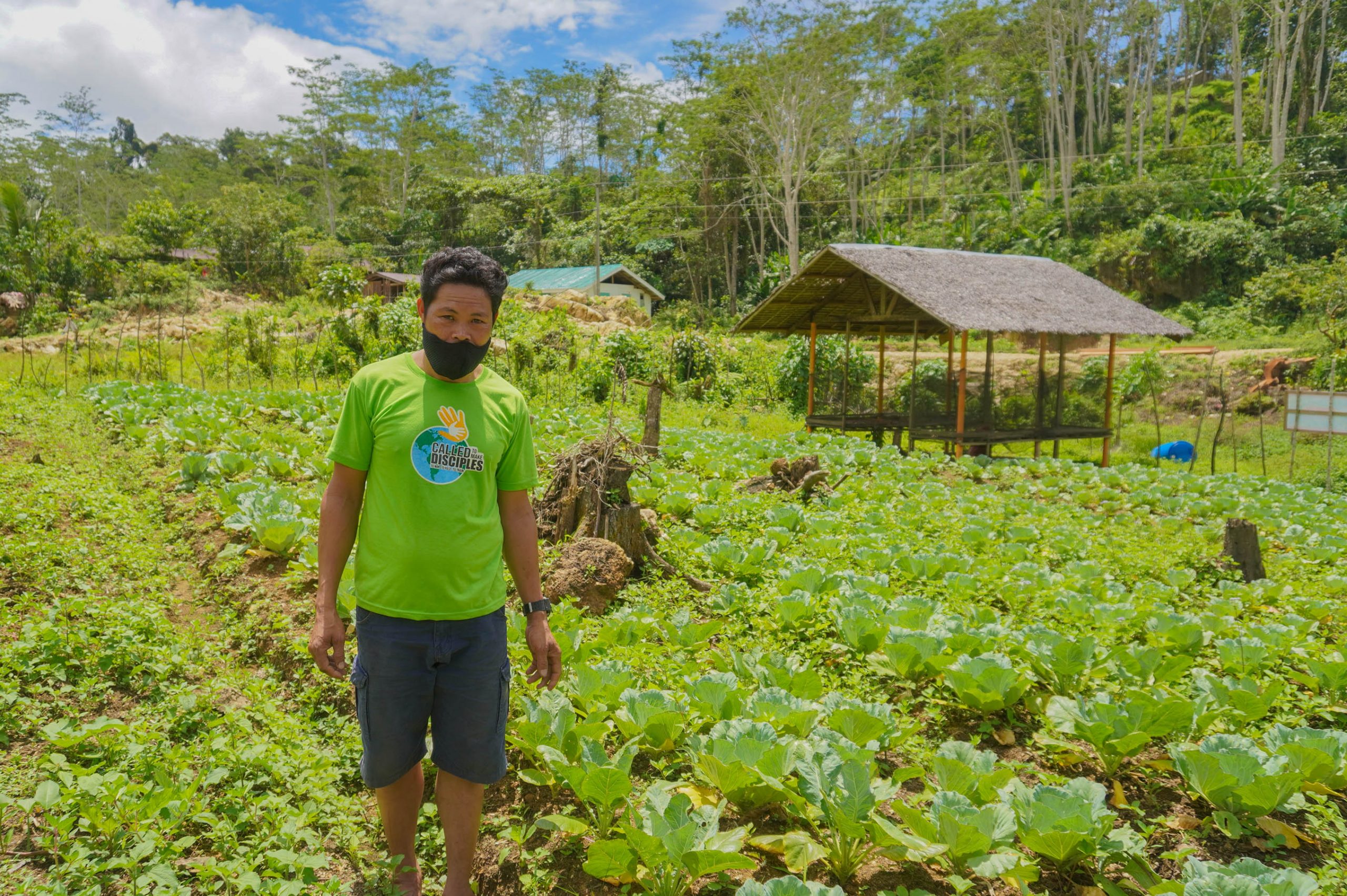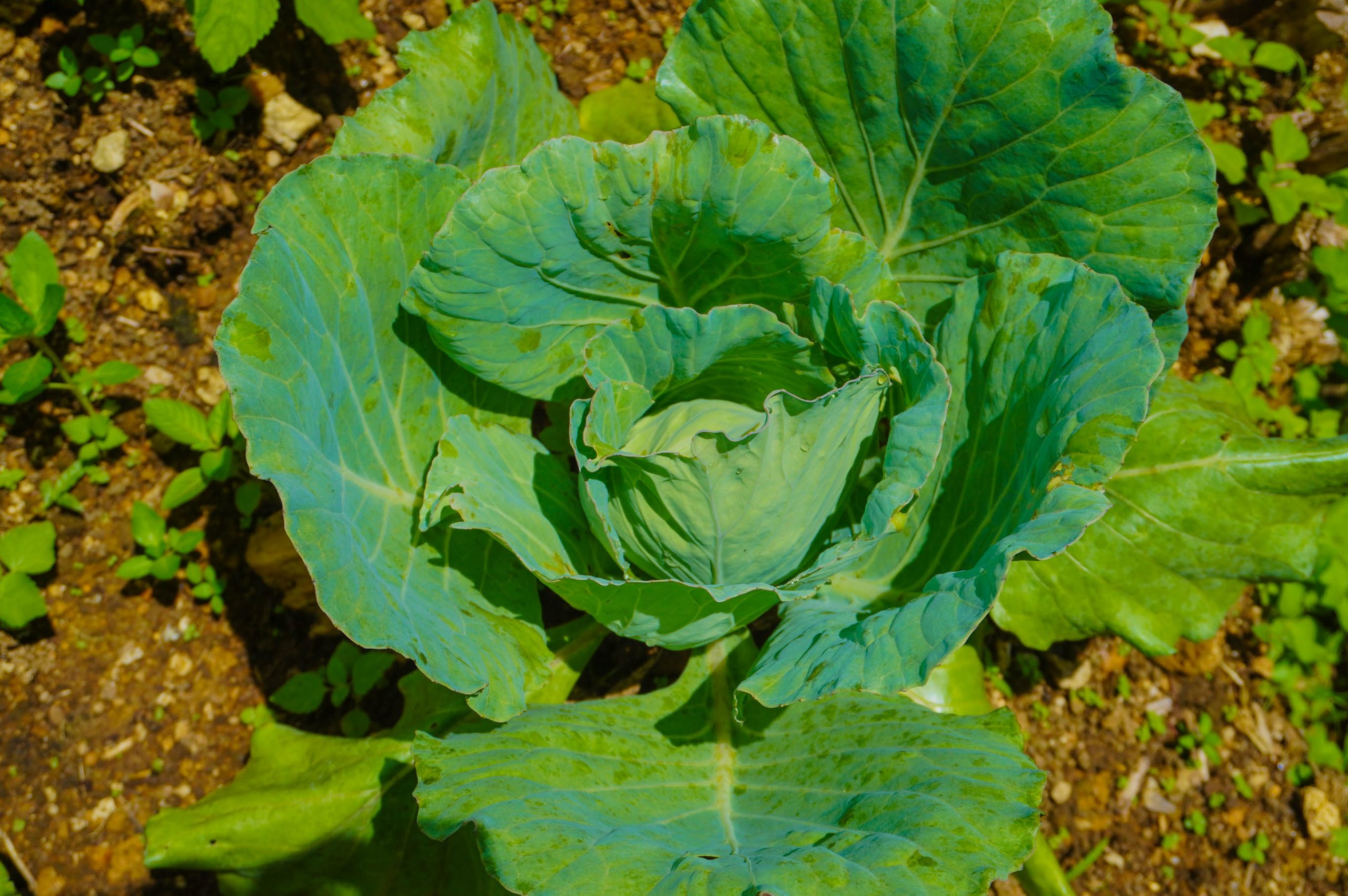Twenty-eight kilometers away from Carmen-proper, Sitio Tabinas is a far-flung community that is accessible only through a motorcycle.
For the Manobo residents who are accustomed to such difficulty, passing through the narrow pathways is tolerable. As per Manong Molly Agustin, President of NAKAMATA, “access to food and goods is more important.”
In rural communities such as Sitio Tabinas, food security is vital. The World Food Programme estimates that more than 135 million people face a hunger crisis and an additional 130 million experience starvation due to the global lockdown since the coronavirus disease 2019 outbreak.
At the epicenter of Sitio Tabinas lies the thriving vegetable garden established by the Nagkahiusang Katawhang Mag-uuma sa Tabinas (NAKAMATA).
The 50 members of the NAKAMATA became recipients of the Department of Agriculture – Special Area for Agricultural Development (DA-SAAD) in Caraga in 2019 under the Ube (Purple Yam) Production Project worth Php 429,817.50 (Table 1).
In the succeeding year, the program provided additional inputs (ube planting materials, farm tools, fertilizers, processing equipment) and training worth Php 918,597.56.
Table 1. Interventions received under the FY 2019 and 2020 Ube (Purple Yam) Production Project

The association planted ube tubers good for 0.5 hectares (ha) in October 2019 from the first batch of tubers given by SAAD. However, only 0.125ha of the area survived the fungal infection which destroyed most of the crops. They replanted the remaining tubers in April 2020 and harvested 50 kilograms (kg) in April 2021.
From the harvested ube, 25kg was used as sample ube powder while the other 25kg tubers will be used as planting materials scheduled to be planted in June 2021.
The second batch of ube tubers they received were planted in November 2020. Unfortunately, 0.2ha out of the 0.5ha area planted were destroyed by Tropical Depression Auring. They are expecting to finally harvest the remaining crops in October 2021.
The promising communal garden
While recovering and expanding their ube plantation to gear up for flour and jam production, the association ventured into vegetable gardening.
In response to the threats of COVID-19, SAAD Caraga allocated funds to support the current SAAD beneficiaries with additional upland vegetable seeds apart from their existing projects. NAKAMATA received a package of seeds good for 2,500sqm worth Php 17,811.11 which includes lettuce, sweet pepper, cabbage, cauliflower, carrots, radish, and snap beans (Table 2)
Table 2. Upland vegetable seeds provided

In March 2021, NAKAMATA harvested 12kg of lettuce and 80kg of radish that they sold for Php 80/kg and Php 30/kg, respectively.
The vegetables sold off quickly upon display at the Sitio and Carmen-proper, giving them total earnings of Php 3,360 (Table 3). Such reception encouraged the group to plant more and to increase their area.
Table 3. Vegetables produced in March 2021

“Before selling them at Carmen-proper, we sold a portion to our members and buyers within Tabinas at a discounted price. Sure, earning income is important. But as a group, we agreed to take advantage of our harvest by consuming it with our family,” Molly added.
Following their last harvest, NAKAMATA members planted another batch of cabbages, cauliflowers, tomatoes, and sweet peppers expected for harvest between June to July.
According to Area Coordinator Ligaya Toroy, the association expects to harvest around 800kg cabbages, 600kg cauliflowers, 10kg sweet peppers, 5kg carrots, and 90kg tomatoes.
Practicing organic farming
The NAKAMATA members are all Manobos attuned to traditional farming practices. Such an inclination to organic farming is apparent in their garden.
Manong Molly and his members do not apply artificial fertilizers in their vegetable garden. Instead, they make organic concoctions, such as Oriental Herbal Nutrient (OHN) and Fermented Plant Juice (FPJ).
OHN is a natural pest control made from edible, aromatic herbs fermented with molasses. FPJ, on the other hand, boosts plants’ vegetative stage. It is the product of young shoots fermented with molasses for seven days.
NAKAMATA members learned about the said concoctions from training with the Technical Education and Skills Development Authority (TESDA) in 2020.
They are also practicing crop rotation or planting different crops sequentially on the same plot of land. This practice, also learned from training, helps improve soil health and prevents pests and weed production. In addition, they will also plant marigolds to ward off more pests.
Future directions
Manong Molly and his members commit to sustaining the communal garden while caring for their ube plantation.
The garden, which turned out to be a practical investment for NAKAMATA members amid the pandemic, accordingly contributes to achieving food security and promoting agriculture in the Philippines.
“Maningkamot gyud mi kay kabalo mi sugod pa lang ni sa suporta nga among madawatan gikan sa gobyerno. Importante para sa amo ang suporta sa gobyerno maong padayon sad mi sa pagpaningkamot,” he said.
[We believe that more government support is coming to Tabinas. So, we are working hard to invite more support to the community.]Admittedly, helping the Manobos at Sitio Tabinas attain food security entails a lot of work. The lack of farm-to-market roads is one major hurdle they face when marketing their produce down the mountains. Even so, NAKAMATA is on the right track.
Investing in projects that complement the resources of rural communities proves to be beneficial and practical.
As exemplified by NAKAMATA, attaining food security in far-flung communities is possible with a sustained support system to mobilize their skills and resources. ###
Writer: Mark Angelo C. Pineda, Information Officer- DA-Caraga
Copy-editor: Natalianne Marie O. Delos Reyes, PR and Comms Officer- SAAD NPMO





Comments (0)